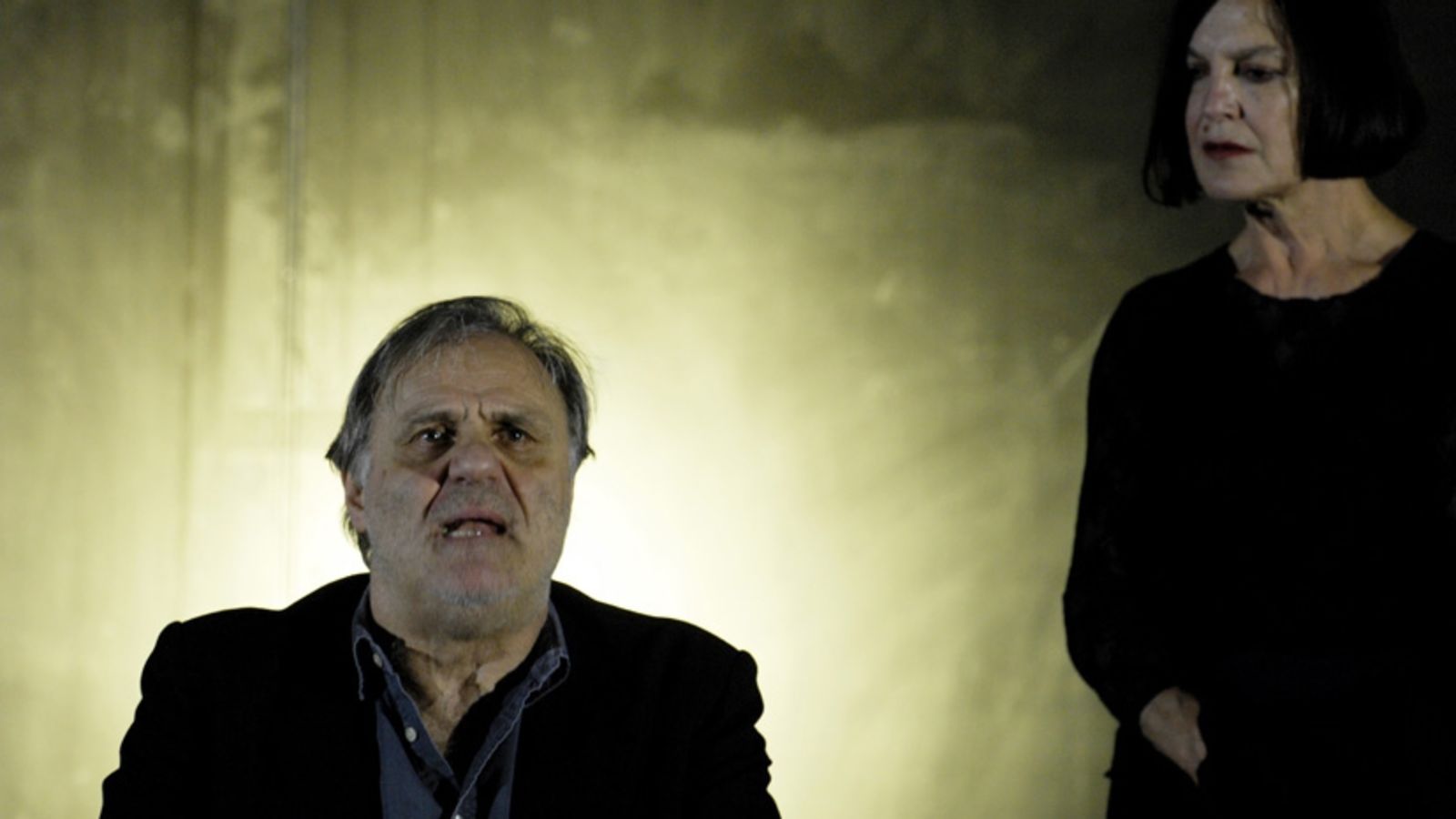
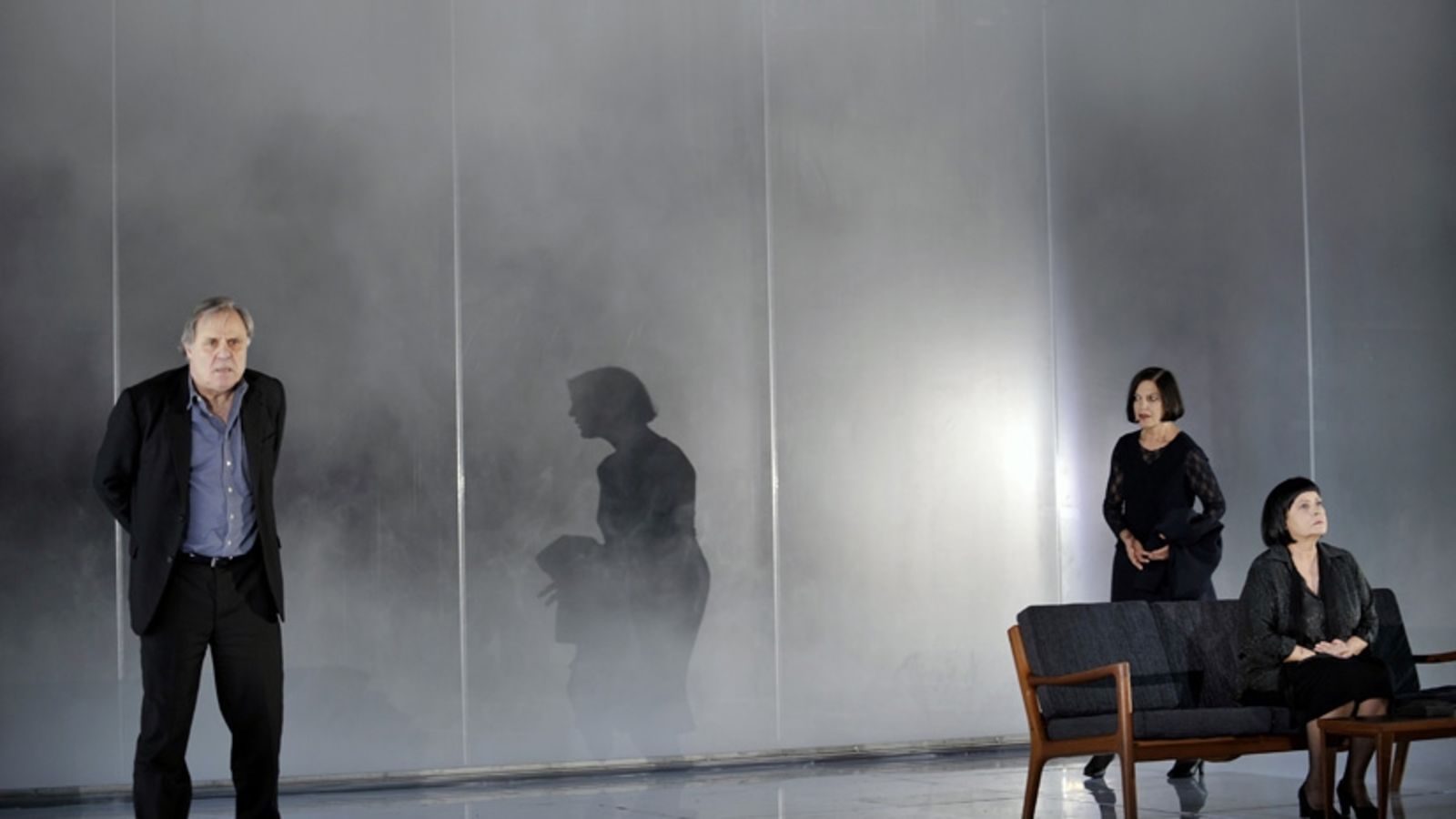
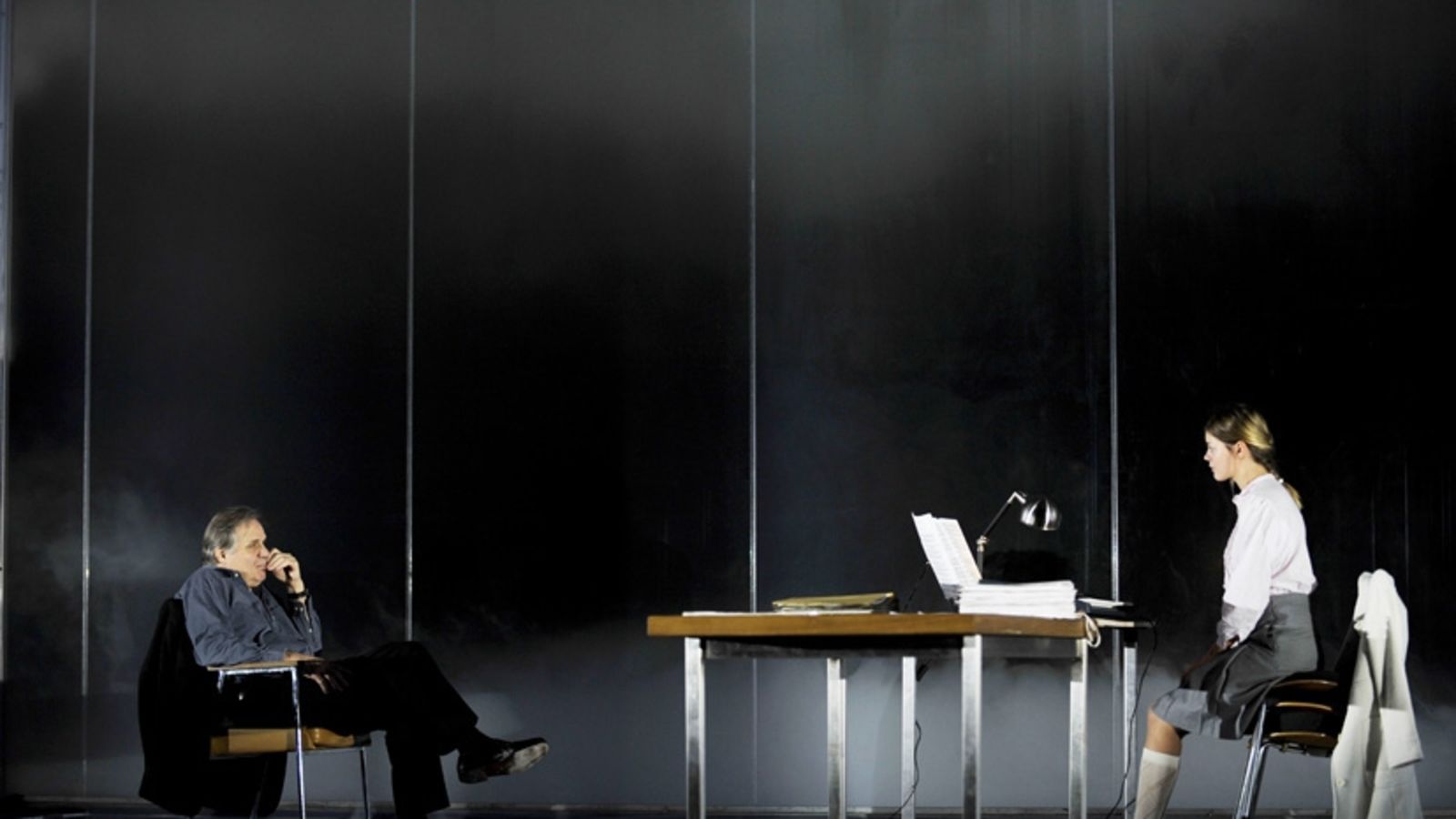
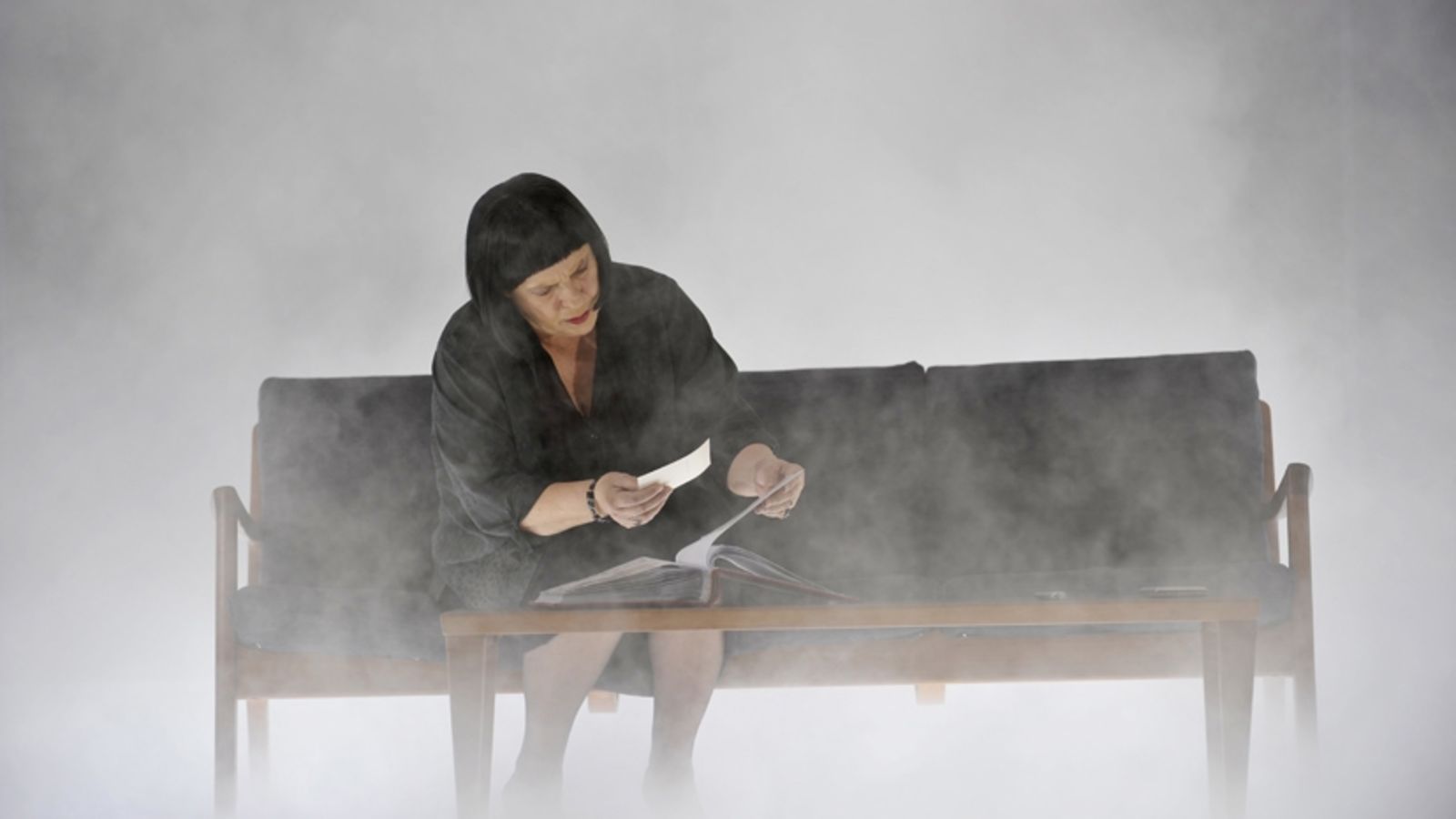
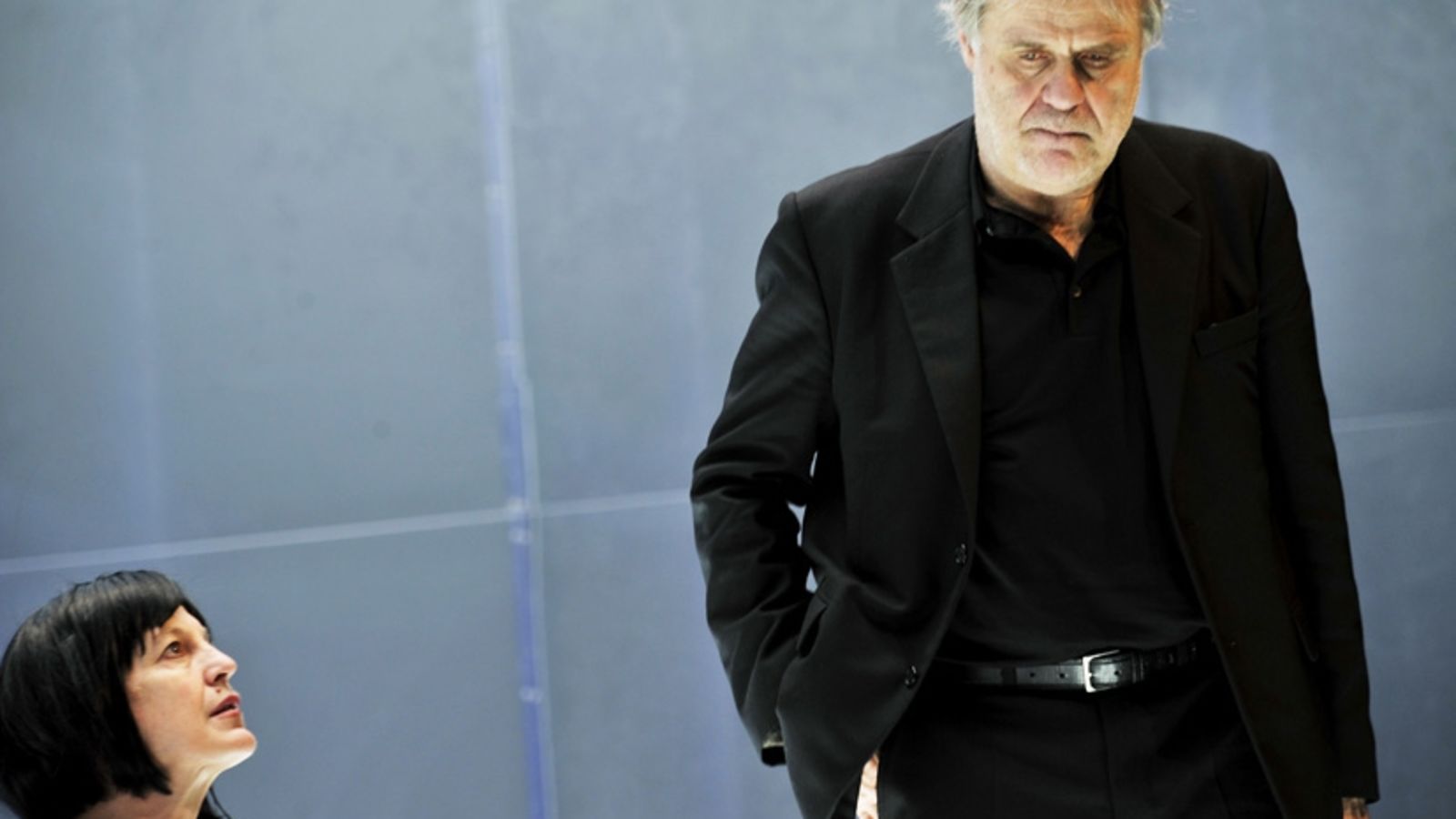
John Gabriel Borkmann
by Henrik Ibsen
Direction: Thomas Ostermeier
German by Marius von Mayenburg; based on the translation by Sigurd Ibsen
A co-production with Prospero, the Théâtre National de Bretagne and the Ruhrfestspiele Recklinghausen; with the support of the Culture Programme of the European Union.
The banker John Gabriel Borkman has not left his first-floor apartment since he was released from prison. During the night he will sometimes slip quietly down the stairs, but he never ventures past the main door, where he stops, reflects, and eventually returns to his self-imposed imprisonment. Inside his room, he paces back and forth, laying plans for his return to society. His wife, Gunhild, hates him, and lives below him on the ground floor. He married her for her money, but in a set of bold transactions he managed to lose her entire fortune along with that of his other clients. His resulting prison sentence made the situation even more humiliating for her: she was forced to live with her twin sister Ella Rentheim. Borkman never touched Ella’s money, and she happens to be his real love, whom he did not marry due to his economic considerations. Ella is terminally ill. A battle develops between her and her sister over Borkman’s son, Erhart, whom Ella raised during the banking crisis. He is now supposed to come back to see her in the city, to be with her at her deathbed. But Gunhild has other plans with her son: she wants him to relinquish his Borkman name, and to cleanse himself of his father’s criminal failure with his own brilliant career. Borkman himself has plans for his son: together he wants to stir up the country’s economy and return to the top of the socio-economic pyramid of power. Gerhard is still a student and only beginning to take his first, independent steps in life. All the expectations heaped upon him suddenly threaten to become overwhelming. One night Ella appears. She is prepared to carry out her conflict with her sister to the end, and demands a decision from Erhart. Finally Borkman leaves his room for the first time, in order to take part in the fight for his son.
Ibsen’s 1896 work is the portrait of a man obsessed with power, and fascinated by the ability of money to shape the world. His own personal gains are actually secondary to him, though; rather, he thinks in broad strokes about human progress. He is willing to walk over corpses, if need be , and to sacrifice his own love. He honors money as if it were a force of nature, which exists above human law and order. Ibsen describes the comet-like rise and fall of a man, as well as the crater left behind after impact: that of torn-up lives and human devastation. There is, however, a desperate hope remaining: that the next generation can set everything right.
Direction: Thomas Ostermeier
Stage design: Jan Pappelbaum
Costume design: Nina Wetzel
Music: Nils Ostendorf
Dramaturgy: Marius von Mayenburg
Light design: Erich Schneider
Fanny Wilton: Cathlen Gawlich
Wilhelm Foldal: Felix Römer
John Gabriel Borkmann: Josef Bierbichler
Gunhild: Kirsten Dene
Frida: Luise Wolfram
Erhard: Sebastian Schwarz
Premiered on 14 January 2009
